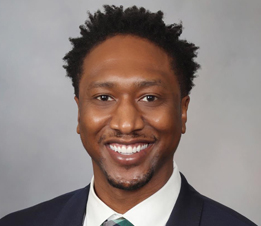Shoulder Instability

Shoulder Instability Specialist
Repetitive overhead sports such as baseball, swimming, volleyball or weightlifting; injury or trauma to the shoulder; or falling on an outstretched hand may cause frequent dislocation of the shoulder joint leading to shoulder instability. Shoulder instability specialist, Dr. Kelechi Okoroha provides diagnosis and individualized non-surgical and surgical management for shoulder instability in Minneapolis. Contact Dr. Okoroha’s team for an appointment today!
What is Shoulder Instability?
Shoulder instability is a chronic condition that causes frequent dislocation of the shoulder joint.
Causes of Shoulder Instability
A dislocation occurs when the end of the humerus (ball portion) partially or completely dislocates from the glenoid (socket portion) of the shoulder. A partial dislocation is referred to as a subluxation whereas a complete separation is referred to as a dislocation.
When shoulder instability is suspected, it is important to schedule an orthopedic consultation for proper examination and care. Dr. Kelechi Okoroha is a shoulder instability specialist who provides detailed examination and care for patients with shoulder instability in Minneapolis, St. Paul, Rochester, Eden Prairie, Minnetonka, Michigan and beyond.
Risk Factors of Shoulder Instability
The risk factors that increase the chances of developing shoulder instability include:
- Injury or trauma to the shoulder
- Falling on an outstretched hand
- Repetitive overhead sports such as baseball, swimming, volleyball or weightlifting
- Loose shoulder ligaments or an enlarged capsule
Symptoms of Shoulder Instability
The common symptoms of shoulder instability include pain with certain movements of the shoulder, popping or grinding sound that may be heard or felt, swelling and bruising of the shoulder seen immediately following subluxation or dislocation.
Visible deformity and loss of function of the shoulder occur after subluxation or sensation changes such as numbness. Partial paralysis can occur below the dislocation because of pressure on nerves and blood vessels.
Diagnosis of Shoulder Instability
To diagnose shoulder instability, Dr. Okoroha will review your presenting symptoms, perform a thorough physical examination and order radiological diagnostic procedures such as X-rays or MRI scans.
Treatment Options for Shoulder Instability
After careful review of your history and examination, Dr. Okoroha will provide an individualized treatment plan to help you return to your normal function.
Conservative Treatments for Shoulder Instability
The goal of conservative treatment for shoulder instability is to restore stability, strength and a full range of motion. Conservative treatment measures may include the following:
Closed reduction: Following a dislocation, Dr. Okoroha can often manipulate the shoulder joint, usually under anesthesia, realigning it into proper position. Surgery may be necessary to restore normal function depending on your condition.
- Medications: Over-the-counter pain medications and NSAIDs can help reduce the pain and swelling. Steroidal injections may also be administered to decrease swelling.
- Rest: Rest the injured shoulder and avoid activities that require overhead motion. A sling may be worn for 2 weeks to facilitate healing.
- Ice: Ice packs should be applied to the affected area for 20 minutes every hour.
Surgery for Shoulder Instability
When conservative treatment options fail to relieve shoulder instability, Dr. Okoroha may recommend shoulder stabilization surgery. Shoulder stabilization surgery is performed to improve the stability and function of the shoulder joint and prevent recurrent dislocations. It can be performed arthroscopically, depending on your condition, with much smaller incisions.
Arthroscopy is a surgical procedure in which an arthroscope, a small flexible tube with a light and video camera at the end, is inserted into a joint to evaluate and treat the condition.
The benefits of arthroscopy compared to the alternative, open shoulder surgery, are smaller incisions, minimal soft tissue trauma, less pain leading to faster recovery.
If you have experienced shoulder instability, please contact Dr. Kelechi Okoroha, orthopedic shoulder specialist treating patients in Minneapolis, St. Paul, Rochester, Eden Prairie, Minnetonka, Minnesota and beyond.








